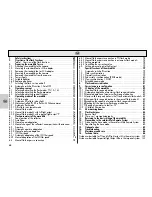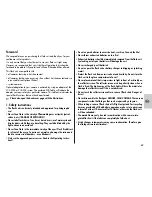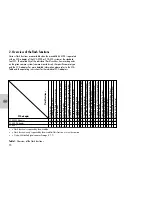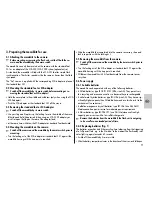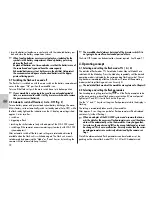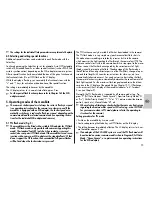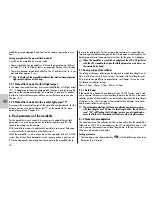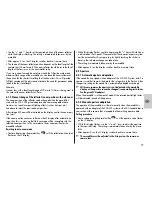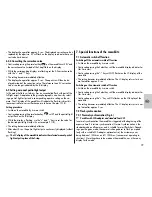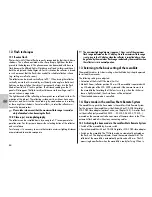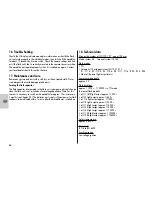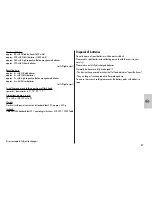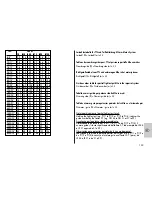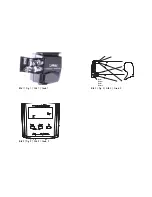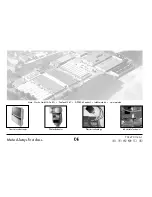
80
ķ
7.2.2 2nd curtain synchronisation (REAR mode) (Fig. 7)
Only possible with a suitable SCA adapter and a suitable camera!
Various cameras offer the facility of second-curtain synchronisation (REAR
mode) triggering the mecablitz by the end of the exposure time. Second-cur-
tain synchronisation is particularly advantageous when using slow shutter
speeds (slower than 1/30 s) or when shooting moving objects that have their
own source of light. Second-curtain synchronisation gives a more realistic
impression of movement because the light streaks behind the light source
instead of building up in front of it, as is the case when the flash is synchroni-
sed with the 1st shutter curtain.
Depending on its operating mode and the SCA adapter, the camera uses
shutter speeds slower than its sync speed.
Some camera types make it necessary to activate the REAR mode on
the camera. Setting the REAR mode on the mecablitz will then be im-
possible or ineffective. For more details please refer to the operating
instructions for the SCA adapter or the camera.
Switching on the REAR mode
• Continue depressing the Select key until REAR appears on the LC display.
• Continue depressing the “+” key until On flashes on the LC display.
• The setting becomes immediately effective. The LC display returns to its nor-
mal state after approx. 5 sec.
The “REAR” symbol for 2nd curtain synchronisation continues to be indicated
on the mecablitz LC display after it has been set.
Always use a tripod to avoid camera shake with slow shutter speeds!
Do not forget to switch off this function after exposure, otherwise un-
intended slow shutter speeds will continue to be used for “normal”
flash shots.
Switching off the REAR mode
• Continue depressing the Select key until REAR appears on the LC display.
• Continue depressing the “-” key until OFF flashes on the LC display.
☞
☞
☞
• The setting becomes immediately effective. The LC display returns to its nor-
mal state after approx. 5 sec.
The “REAR” symbol for 2nd curtain synchronisation is no longer indicated by
the mecablitz display.
The mecablitz is then once again synchronised with the first curtain (normal
synchronisation).
7.2.3 Slow synchronisation / SLOW
Various cameras feature slow flash synchronisation in certain modes. This
mode will give added prominence to the background at lower ambient light
levels. This is achieved by matching the shutter speeds to the ambient light.
Accordingly, shutter speeds that are slower than the camera’s sync speed are
automatically adjusted by the camera. Some cameras automatically activate
SLOW synchronisation in connection with certain camera programs (e.g.
night shots program). No settings are made on the mecablitz nor is there any
display for this mode.
Use a tripod to avoid camera shake with slow shutter speeds!
7.3 Extended zoom mode
The extended zoom mode is only supported with SCA adapters of the
SCA 3002 system. The camera must then transmit the focal length
data of the lens to the flash unit or the SCA adapter (see operating
instructions for the corresponding SCA adapter).
The extended zoom mode Ex reduces the reflector position of the mecablitz
by one step compared with the focal length of the camera lens. The resulting
wider light coverage inside rooms provides additional stray light (reflections)
to achieve softer flash illumination.
Example of extended zoom mode:
The focal length set on the camera lens is 35 mm. The extended zoom mode
sets a 28 mm reflector position on the mecablitz even though 35 mm con-
tinues to be indicated on the LC display!
☞
☞


